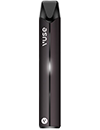Your Cookie Settings
We collect and store information on your device when you use this website, including through the use of cookies. Some cookies are strictly necessary, while others are used to enhance your experience and to operate and improve the website. You can withdraw your consent at any time for non-strictly necessary cookies by clicking on "Decline Cookies".Please choose the "Accept Cookies" button below if you consent to us using these non-strictly necessary cookies and the personal information they collect for the purposes described in our Privacy Policy. Free shipping from 40 CHF
Free shipping from 40 CHF

To use the Vuse website you must be aged
18 years or over.
Are you older than 18 years?
IS VAPING SAFE?
Do you have concerns about the quality and safety of vaping products? We'd like to take away these doubts about e-cigarettes and clear up rumours about exploding batteries, THC liquid and more. Find out what makes a safe e-cigarette and which extensive safety tests and quality standards we fulfil at Vuse.
E-CIGARETTE QUALITY COUNTS
SAFETY REGULATIONS
MORE ON SAFETYQUALITY AND CERTIFICATIONS
ALL ABOUT QUALITYRESEARCH AT VUSE
ON THE 360-DEGREE APPROACHHOW SAFE ARE E-CIGARETTES ?
With regard to the safety and quality of e-cigarettes, there are two essential points to evaluate: the e-cigarette battery and the liquid. Both components are subject to strict safety regulations in Switzerland. Only choose e-cigarettes from trustworthy manufacturers. In particular, check whether the products have a CE mark and carry the necessary warnings. The product descriptions should be written in one of the local national language and the ingredients should be listed – high quality is also a top priority for Vuse.
In general, you can assume that vapour products from high-quality manufacturers in Switzerland comply with the legal framework and safety requirements. Nevertheless, the correct handling of electronic cigarettes also plays a role. For example, you should not modify your e-cigarette battery yourself and only charge it properly. Choose only premium liquids that are adapted to your device.
FACT CHECK ON THE E-CIGARETTE, QUALITY & SAFETY
However, problems can still occur with the e-cigarette. You have read headlines about EVALI and THC liquid or heard that the e-cigarette exploded? You don't have to worry about that in Switzerland. Nevertheless, we would like to enlighten you. Find out here what it's all about and what speaks for a safe e-cigarette.*
MISCONCEPTION: The use of e-cigarettes causes lung injury (EVALI).
FACT: The English acronym "EVALI" stands for "e-cigarette or vaping product use associated lung injury". There was an increase in serious illness and deaths from adulterated vapour products in the US in 2019. In many cases, the e-liquids contained THC and were bought from non-official quality manufacturers. These lung injuries were referred to as EVALI cases. Since THC liquid is banned here, this risk should not materialize, provided however that the liquids are purchased from a quality manufactrurer or via official sales outlets or specialist retailers. It this does however not necessarily mean that this product is less harmful than other tobacco products.
MISCONCEPTION: E-cigarettes explode when vaped
FACT: According to a report by the U.S. Fire Administration, there were nearly 200 e-cigarette explosions and fires in the U.S. between 2009 and 2016. Increased accidents and deaths from exploding e-cigarettes have been reported around the world. When an e-cigarette explodes, it may be because elementary safety standards are lacking or the e-cigarette has been modified by the vaporiser. We advise against modifying an e-cigarette. In general, when handling lithium-ion batteries, safe handling should be followed according to the manufacturer's instructions. High-quality e-cigarettes from quality manufacturers comply with applicable laws and safety requirements – this includes those designed to eliminate explosion.
NO DANGER FOR SWISS VAPERS
In Switzerland, vitamin E acetate and cannabis oils may not be added to e-cigarette liquids. To ensure that vaping products are safe, numerous legal requirements apply to the manufacture, presentation and sale of e-cigarettes, among other things. The regulations are laid down in the EU Tobacco Products Directive 2014/40/EU and the Swiss Foodstuff regulation, among others. There, e-cigarettes are regulated as so-called related products of tobacco products. These regulate e-cigarettes not only with regard to liquid ingredients, but also include reporting obligations, child safety and much more. In addition, e-cigarettes are subject to the Product Safety Act and the Battery Act in terms of technical product and battery safety.
* These are general indications and characteristics only. No statements are made about the general safety of all or specific e-cigarettes.






